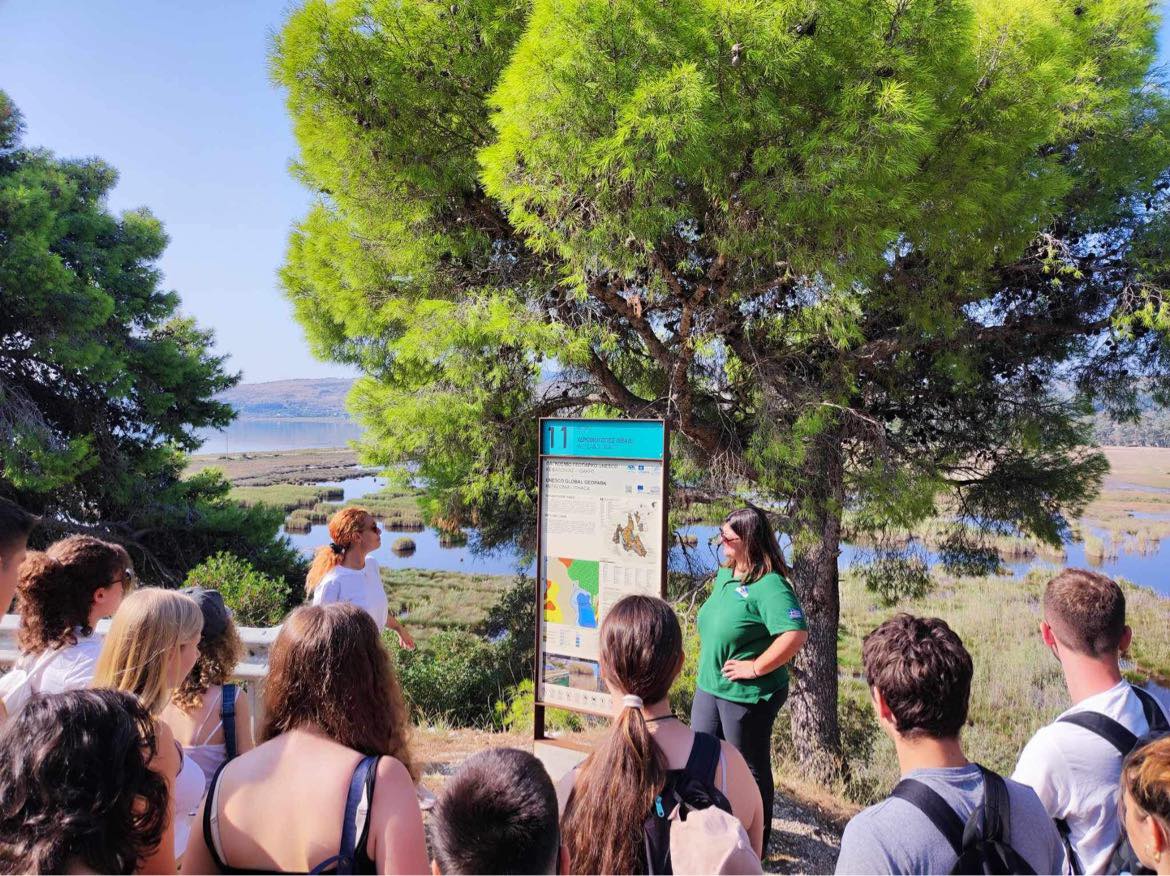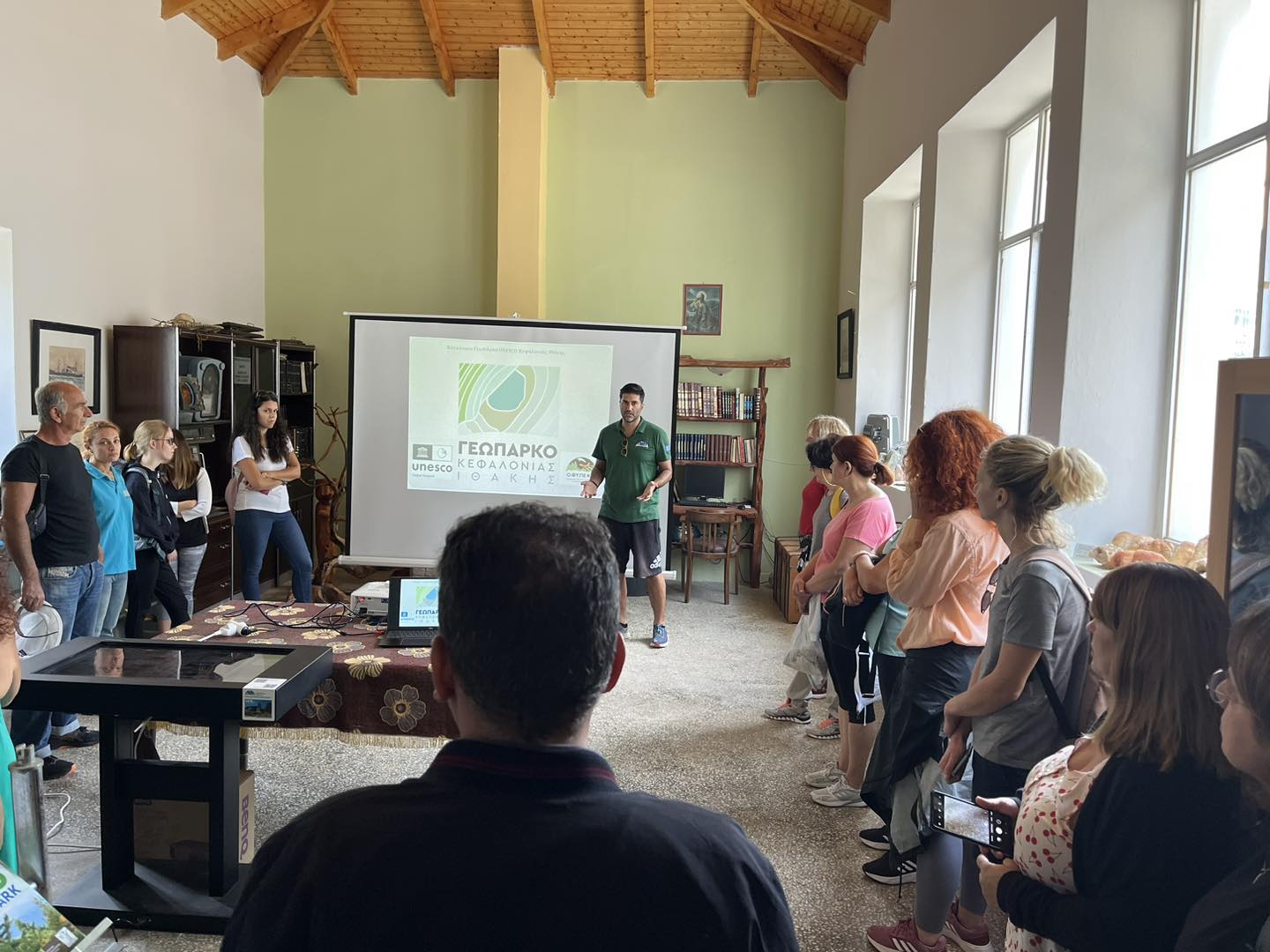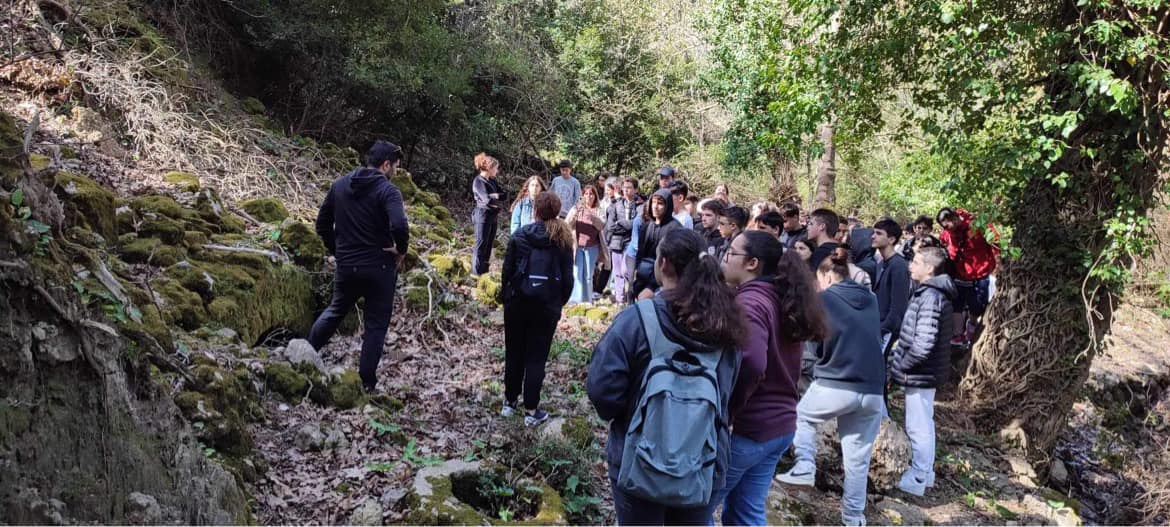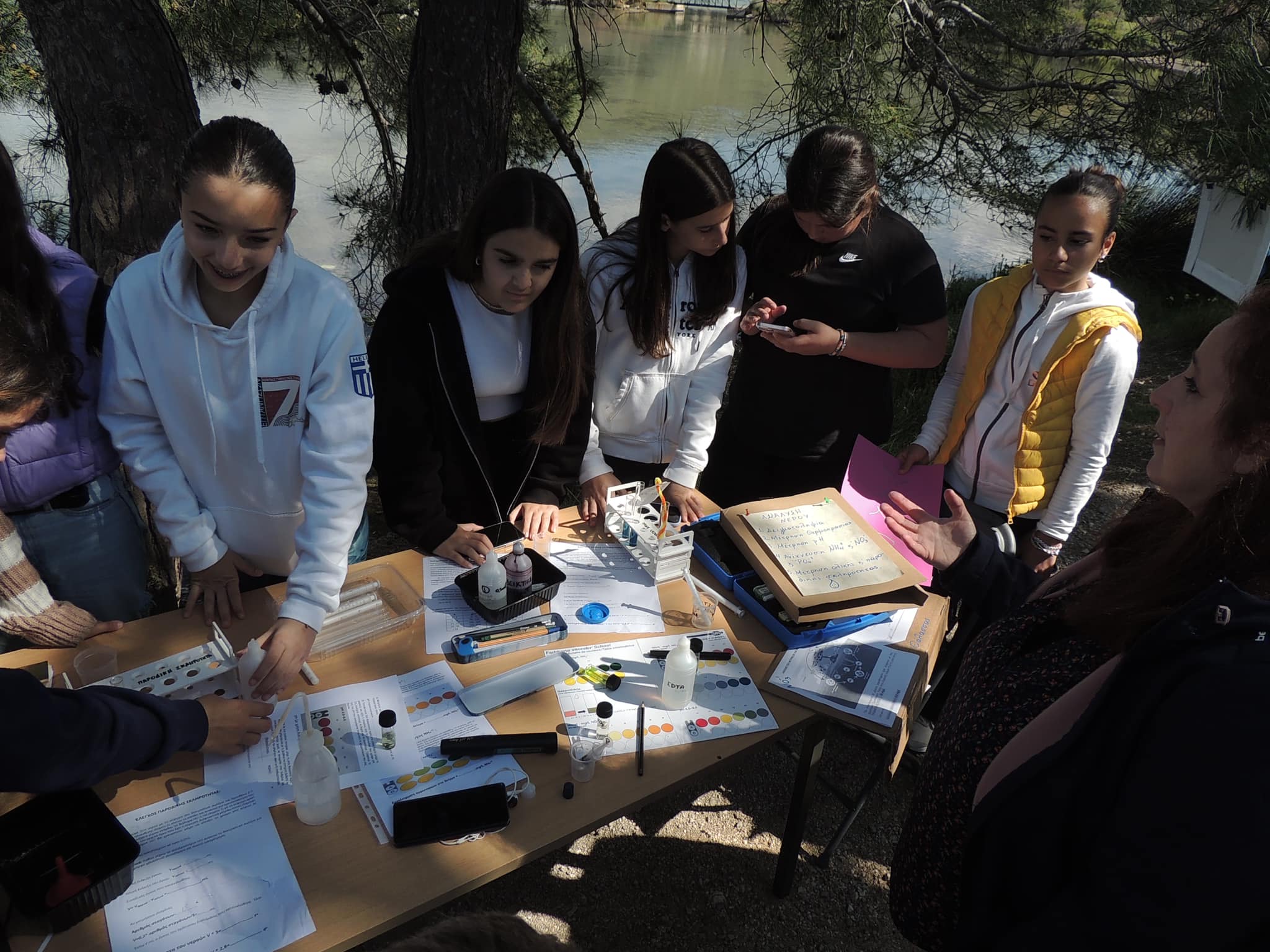The Geopark of Kefalonia - Ithaca in cooperation with the Secondary Education Directorate of Kefalonia where it is the Coordinating Body and with the participation of teachers and school units of the Secondary Education Directorate of Kefalonia, in the framework of the implementation of School Activities Programmes (Environmental Education, Health Education and Cultural Issues) implements the operation of the Local Thematic Network on the theme: "Geopark of Kefalonia and Ithaca: Nature and Culture".
Description of the Local Thematic Network: "Geopark of Kefalonia and
Ithaca: Nature and Culture":
A Geopark is an area with a special geological heritage
of international importance and with a sustainable territorial development strategy. It should be a special heritage site with a special significance of particular importance and a strategic strategy for sustainable development.
have clearly defined boundaries and enough space to allow for real development
territorial economic development, mainly through tourism. The geological sites
must be of international importance in terms of scientific quality
their scientific scientific quality, rarity, aesthetics and educational value. All these sites
should be related not only to geology, but also to archaeology, archaeology, geology and
ecology, biodiversity, history and culture. Geoparks, as a concept,
combine conservation with sustainable development and the involvement of local
communities.
Geoparks build on this heritage to understand and
to understand and address key issues facing society, in the context of
the dynamic planet we live on (a planet that is subject to
changes). The important places/spaces within a Geopark should
protected, where appropriate, in accordance with local, regional or national legislation
legislation.
More specifically, the islands of Kefalonia and Ithaca constitute a
a single geographical area. The area pleasantly surprises visitors with
with what it offers them. The basic values (geological wealth, natural wealth,
archaeological - recent cultural wealth, interconnection of cultural - natural
heritage, intangible cultural heritage) guarantee an exceptional environment
living environment.
The role of education is crucial in order to make people aware of
The role of education is crucial in enabling pupils to learn about geodiversity and biodiversity, the richness of
geological phenomena and the natural environment, historical monuments and the richness of the natural environment.
and the living cultural traditions of their own country, and
to understand how the geomorphology of their country is inextricably linked to the
history and cultural heritage.

The aim of the Local Thematic Network "Geopark of Kefalonia - Ithaca:
Nature and Culture", is, through the design and implementation of the
"Environmental Education,
Cultural Issues and Health Education) in the context of this theme, to
to foster respect and critical thinking among pupils towards the environment and the environment
respect and respect for and respect for geodiversity, biodiversity, geological monuments, as well as for the material and physical and cultural heritage of the environment.
and intangible cultural heritage of their own country and to raise awareness of the
to raise their awareness of their protection and preservation as a means of achieving sustainable development.
local development.
Objectives of the Network:
The aim is that through the activities of the Network the pupils:
1. To acquire basic knowledge about geotopes and species of geotopes
to learn about the geological evolution of the geological region through time.
2. To discover the diversity of life in the geotopes
and raise awareness of the conservation of geodiversity
and biodiversity of their local area.
3. To acquire a knowledge background about natural disasters and
a knowledge of natural hazards, in particular seismic risk and the possibilities of prevention and
protection possibilities.
4. Using the institution of Geoparks, to raise awareness and
develop skills for more effective conservation and
Develop skills and competencies to ensure the effective protection of the natural and man-made environment, natural and natural resources and the environment.
and natural and cultural monuments of their own country.
5. To link the geomorphology of their place with the history and
cultural heritage.
6. To get in touch with the local intangible heritage and to get to know the
To get to know the various aspects of this heritage (mythology, history, tradition, fairy tales, customs and traditions)
customs, traditional food, traditional practices, etc.), with the aim of
sustainable local development.
7. To develop communication skills, creative cooperation and
7. Develop skills in communication, creativity, creativity and teamwork, using experiential learning as a tool.
8. Practise research, collection of material, processing of information, and the use of visualisation and learning skills.
to practice practising learning, processing information and drawing conclusions.
9. To work with local institutions and study local records and
work with local communities and local sources.
10. to use digital media and tools in the context of cultivating
digital competences and skills.
11. To plan and implement joint activities with other schools, to
to produce proposals and exchange ideas in order to become tomorrow's
active citizens who will manage these areas.

Methodology:
- Experiential and inquiry-based learning
- Collaborative learning
- Interdisciplinary and interdisciplinary approach
- Research work (project method)
- Study with fieldwork
- Environmental Trail
- Opening the school to the local and wider community
Suggested Themes:
1. 1. Geodiversity and geological heritage - Geological Kefalonia
2. The Geotopes of Kefalonia
3. The Geotopes of Ithaca
4. Water and Rocks
5. Fossil sites of the Kefalonia-Ithaca Geopark
6. Geodiversity and Biodiversity of Kefalonia and Ithaca
7. The promotion of Geoparks as an essential tool for sustainable development
management of the environment
8. Hiking geo-routes and traditional paths in Kefalonia
and Ithaca; sustainable development and alternative tourism
9. Traditional practices and geodiversity: Traditional practices
Traditional crops in Kefalonia and Ithaca and the practice of traditional farming
The practice of terraces (armadillos)
10. The herbs and edible wild greens of Kefalonia and Ithaca and the practice of the "harps" and the practice of the "harnessing".
their properties
11. Geodiversity and natural disasters-climate change
12. Geomorphology and seismicity in Kefalonia and Ithaca - visits to
Pre-seismic settlements
13. Geodiversity and local architecture of Kefalonia and Ithaca
14. Geodiversity and Culture (tangible and intangible cultural heritage)
15. Historical monuments of Kefalonia and Ithaca
16. Festivals of Kefalonia and Ithaca: traditional dances, dance songs
and costumes
17. The musical tradition in Kefalonia and Ithaca
18. Traditional handicrafts in Kefalonia and Ithaca
19. The Kefalonian / Ithakian customs and traditions in the cycle of time - myths -
fairy tales - rhymes - place names
20. Traditional Kefalonian and Ithaca cuisine and pastry
21. Geodiversity and Local Products
22. The vine and indigenous varieties in Kefalonia and Ithaca - H
Cultivation of Robola
23. The Olive Tree and the Olive Growing in Kefalonia and Ithaca
24. Honey and the tradition of beekeeping in Kefalonia and Ithaca
Ithaca
25. Fishing in Kefalonia and Ithaca - Traditional practices and
recipes
26. Cheese-making in Kefalonia and Ithaca

